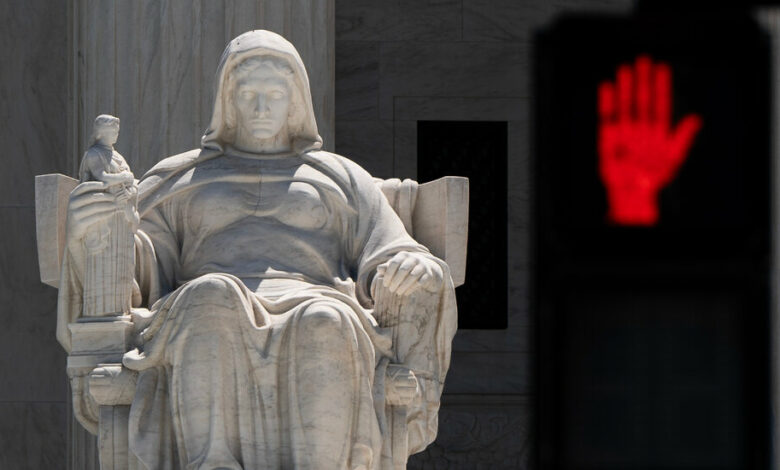Judge postpones several deadlines in case over secret Trump documents

A federal judge on Saturday extended several deadlines in former President Donald J. Trump’s case over secret documents to give prosecutors time to respond to his request for a broader pause following the Supreme Court’s ruling this week on executive immunity.
On Friday, lawyers for Mr. Trump asked Judge Aileen M. Cannon, who is overseeing the case, for permission to submit additional documents to bolster their immunity challenge. They argue that the Supreme Court’s decision in a separate case that granted Mr. Trump broad protections for official acts as president applies to the document process.
As part of their efforts, the attorneys asked Judge Cannon to put the documents case on hold almost entirely while she wrestled with the issue of immunity.
In a brief order on Saturday, Judge Cannon told prosecutors in the office of special counsel Jack Smith that they had until July 18 to respond to Mr. Trump’s request for a sweeping delay. In the meantime, she postponed two looming deadlines in the case, relating to the submission of expert witnesses that the two sides plan to introduce at trial and the defense’s obligation to provide discovery information to the government.
The two deadline extensions would likely cause only minor delays in the documents case, which has already been slowed to a crawl by Judge Cannon’s previous rulings. The judge has not yet set a date for Mr. Trump and his two co-defendants to stand trial. Because she is still weighing a number of unresolved legal issues, it is extremely unlikely that the case will go before a jury before the November election.
Yet her decision to extend the deadlines, like many of Judge Cannon’s other orders, had an unusual aspect.
As part of the order, she extended the deadline — set for Wednesday — for Smith’s deputies to file key legal documents describing the types of classified materials they believe are not relevant or safe to use if and when the case ultimately goes to trial. In the next breath, however, she told the special counsel’s office that it “may proceed with filing if it so chooses.”
There could be more unusual twists to come in the effort by Trump’s lawyers to tie the documents case, which centers on Trump’s conduct after leaving office, to the Supreme Court’s immunity ruling. That decision came Monday after months of legal wrangling in Trump’s other federal case — the one in Washington, where he is accused of plotting to undermine the 2020 election.
First, it is unclear whether Judge Cannon will be open to the defense’s arguments for immunity, given that the indictment focused almost exclusively on actions Trump took after he left the White House.
The charges in the documents case accuse the former president of illegally withholding classified national security information after he was out of office and then obstructing government efforts to retrieve the information from his Florida home.
Mr. Trump’s original arguments for immunity from the documents case were far-fetched. They were made well before the Supreme Court, given his claims in the election interference case, in which he said he did in fact enjoy a form of immunity.
In February, his lawyers filed a motion with Judge Cannon arguing that he could not be tried on the charge of theft of classified documents because he claimed he had marked the materials as his personal property before leaving the White House, under a law known as the Presidential Records Act.
According to the lawyers, the decision was made in his official role as president and therefore could not form the basis for a criminal charge.
Smith’s team laughs at the idea that the Presidential Records Act would give Trump the authority to designate some of the country’s most secret documents as his personal records.




